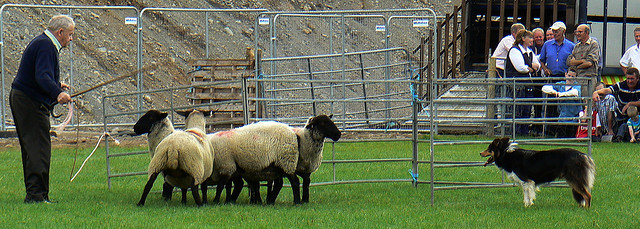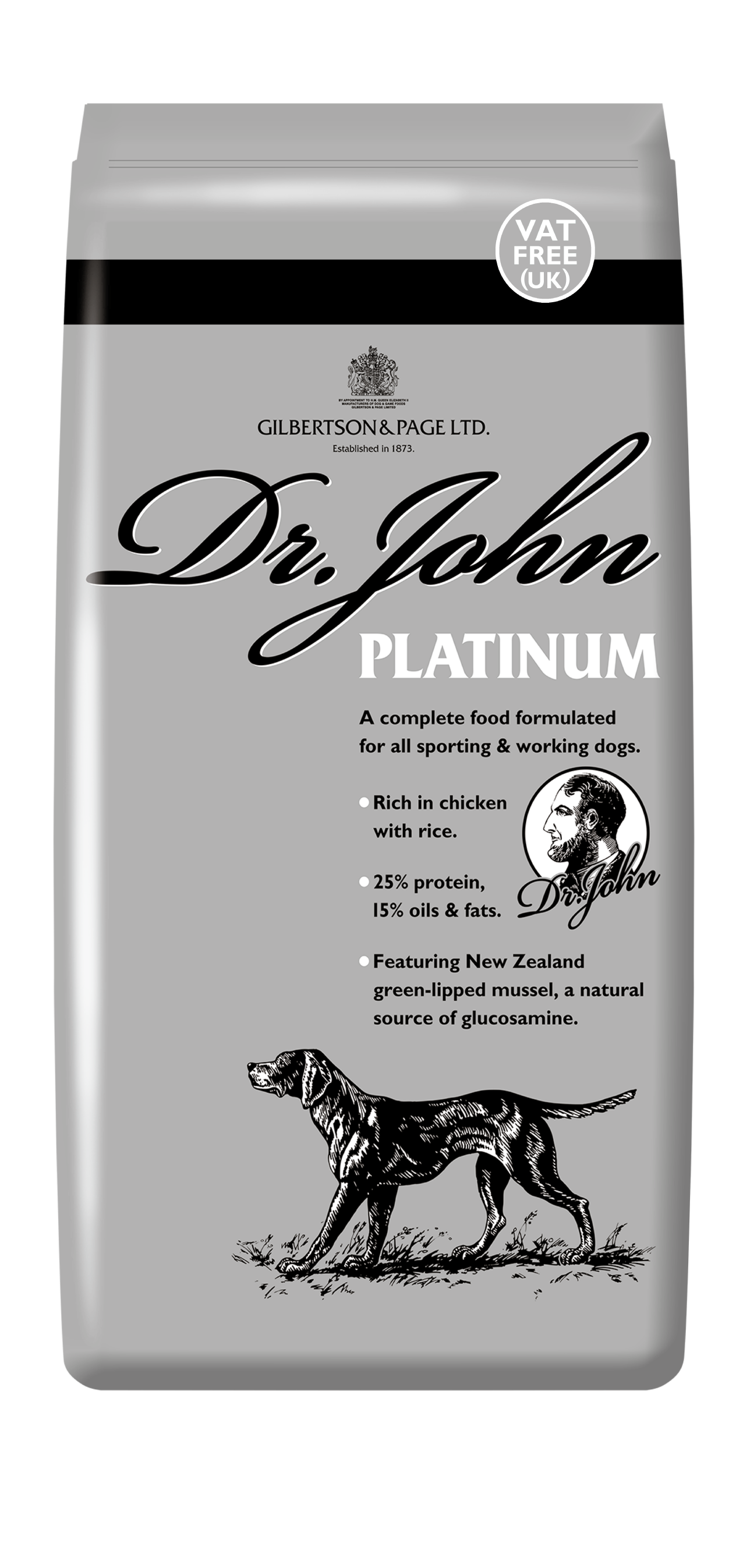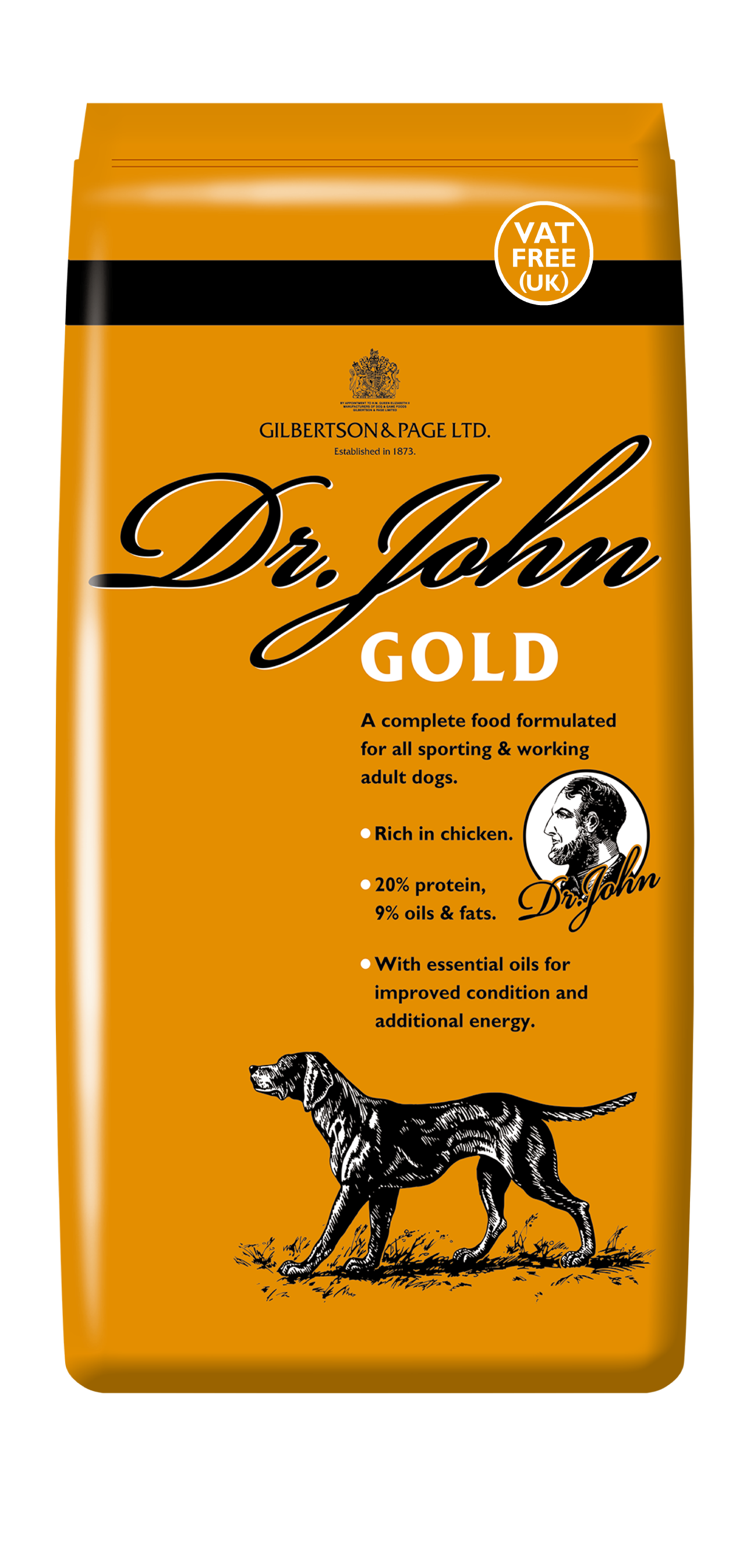Working Dogs have Different Dietary Requirements
27/02/2014
It’s worth considering working dogs separately to pets with regard to dietary requirements. Rather like human athletes or manual workers, they can have a variety of different additional needs, dependent on the work they carry out or sport they engage in. However, some general principles do apply to working dogs, which we’ll explore here.
Energy In Equals Energy Out
Working or sporting dogs are likely to need either a higher energy diet like Dr John Platinum or a good active maintenance diet like Dr John Gold, with enough energy for activity, protein for growth, maintenance and repair of tissues and essential fats for condition and additional energy. Start by feeding towards the upper end of the recommended feeding requirements to get the right level to maintain condition in your dog. Feeding twice a day is ideal for most dogs. However, it needs to be at appropriate times with a working dog, so they can have a rest after eating to encourage good digestion before starting a period of work.
You should consider their activity levels and type of activity: If they are active throughout the day, i.e. a working sheepdog, or police detection dog, then stamina is important and slow-releasing complex carbohydrates (whole grain cereals) can provide them with the energy they need to take them through their working day.
Sporting dogs, like spaniels and labradors used in shoots and trials, will need higher levels of energy for short bursts of activity. They will also need good concentration and eyesight for retrieval, so a highly active diet like Dr John Platinum will give them the additional energy and nutrient levels they need, along with a joint supplement to keep their active joints supported and in good health.
At the other end of the spectrum, the racing greyhound has been designed for immense speed, sprinting over short distances. They require extraordinary concentration on the lure but then have a tendency, not surprisingly, to collapse on the sofa at the end of the day. Racing greyhounds need small biscuit based diets (to suit their mouth size) of low bulk, high digestibility and high fat. This also needs to have a good level of protein (24-25%) to improve race times and to prevent the development of anemia which is a common condition amongst greyhounds. The mineral content of the diet is particularly important for greyhounds as they need up to 2-3 times the normal levels of a sedentary dog, simply to cope with the stress of racing. A supplement during race season may be needed to keep the greyhound in good health.
Changing Diets
Working dogs will also need to change diets just like pet dogs at different times in their life, so a progression of growth, adult and senior diets are still important for these dogs. Making sure the changes are not undertaken during stressful periods, or heavy workloads, is ideal and will minimise any digestive upsets as quickly as possible so there is no loss of condition in the dog. These dogs will tend to show illness quicker, so keeping a close eye on their general health should help to pick out symptoms early.
With all of these working and sporting breeds, their diet needs to be reviewed regularly to make sure they are in optimum condition and enjoying their food. When they are not working or racing, it is a good idea to move them down to a lighter, lower fat maintenance diet so they don’t notice that their meals are smaller and they then will not gain unwanted weight in the resting periods. On retirement, continue to feed them a good, digestible, maintenance diet, preferably with a joint health supplement (for instance, Gilpa Kennel) to ease them through their senior years.
References
Burger, I.H., (1994). “Energy needs of companion animals: matching food intakes to requirements throughout the life cycle.” J Nutr 124(12 Suppl):2584S-2593S.
Kohnke.J.R.,(2002). “Feeding the racing greyhound”. Nutritional biotechnology in the feed and food industries 497-503.
Hill, R.C., (1998). “The Nutritional Requirements of Exercising Dogs.” J. Nutr (128) 12: 2686S-2690S





